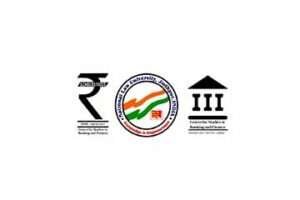International Conference Human Rights Challenges and Solutions in India, by Maharishi Law School on 11th Feb 2023 In Association with MyLawman Criminological Research & Development Organisation (CRDO)
Table of Contents
- Concept Note
- Significance and Challenges of Human Rights-
- Sub-Themes:
- Mode
- Registration Fees
- Perks to be given to Participants
- Important Dates
- Contact Information
Concept Note
Human rights are a generic term as it embraces civil rights, civil liberties, and social, economic, and cultural rights. It can be said that these rights that all people have by virtue of being human are human rights. Rights being immunities denote that there is a guarantee that certain things cannot or ought not to be done to a person against his will. An individual can seek human rights only in an organized community i.e. a state where the civil social order exists. No one can imagine invoking them in a state of anarchy where there is hardly any right to a citizen. The area of Constitutional Governance & Human Rights are required to be focused on and shall be discussed its challenges and outcome through the International Conference.
Human rights are at the heart of the constitutional order of a modern State, not only determining relationships between the individual, groups, and the State, but also permeating State structures, and decision-making and oversight processes. As a consequence, a bill of rights constitutes an integral part of a modern constitution. At the same time, gaps in the implementation of human rights at the national and international level, whether individual or where appropriate collective rights, often originate from shortcomings in the area of constitutional law.
As the highest law of a country, the constitution is at the center of the political and social life of the country and defines the relationship between the State and the society, and between the different functions of the State. A country may have a constitution, but not necessarily “constitutionalism”. Constitutional governance simply means ‘governance’ according to the constitution. It recognizes the need for the government to insist upon limitations being placed upon government powers. It envisages checks and balances and put the power of the legislature & executive under restraints. Otherwise, it would jeopardize the freedom of people and lead to an authoritarian oppressive government.
Furthermore, the Constitution acts as grundnorm which reflects the nature of the relationship between the institutions of government and the society, and once the principles and duties join hands with rights; the State becomes a welfare state. Due to the welfare nature of the State, it becomes the indispensable duty of the state to deal with its citizens to ensure the proper functioning of the welfare machinery and do the oiling when required. The essence of good governance lies in respecting the human rights of individuals in order to strike a near-perfect balance between development and empowerment. In that sense, human rights and individual development share a common vision and serve the overall purpose of the development of all. Human rights are inherent in all individuals irrespective of their caste, religion, sex, and nationality. These rights are essential for the entire individual society as they are consonant with freedom and dignity and are conducive to physical, moral, social, and spiritual welfare.
This conference seeks to lay an impact on the various challenges while implementing human rights in an effective manner keeping in mind
Significance and Challenges of Human Rights-
Sub-Themes:
- Changing the concept of humanity in the present era
- Human rights, constitution, and culture
- Human Rights and the right to be human
- Democracy & Protection of Human rights
- Equality: Reducing inequalities, advancing human rights
- Cooperative Federalism
- Role of Judicial Institution in Constitutional Governance
- Role of the Indian Government to achieve the goals envisaged by the constitution
- Constitutional Policy and Political justice in India
- Amendments to the Indian Constitution and various challenges
- Separation of Powers between various organs Dispute Resolution Mechanisms and Institutions
- Appointment to various Constitutional Posts, Powers, Functions, and Responsibilities of various Constitutional Bodies
- Important aspects of Governance, Transparency and Accountability, E governance-Application, models, success, limitations, and potential, Citizen Charters
- Transparency & Accountability, Institutional & other measures
- Role of Civil Services in a Democracy
- Constitutional Governance and Prison Reforms
- Global Governance of Human Rights
- Trafficking, Terrorism, and Human Rights
- Independence is guaranteed by the National Constitution or by statutes
- The role played by Civil Society in Promoting, Protecting, and Monitoring the Human Rights
- Directive Principles of State Policies and Human Rights
- Constitutional Governance and Rule of Law
- Constitutional Governance and Access to Justice
- Constitutional Governance Moral Values and Ethics
- Human Rights vis-à-vis Child Rights
- Role of Human Right Institutions in maintaining the Human Rights
- Any other topic which is has relevance to the main theme.
Mode
Hybrid (Offline & Online both)
Registration Fees
For Offline Mode
Academician/Advocate/Industry Expert: Single Author: Rs. 1000 INR (With Co-Author: Rs.1200 INR)
Research Scholar/Student- Rs. 700 INR(Single Author) Rs. 1000/- INR (with Co-author)
For Online Mode
Single Author: Rs. 1200 INR | Co-Author: Rs. 1400 INR
Perks to be given to Participants
- Best Paper Award (Certificate + Memento)
- Participation/ Presentation Certificate to all
- Selected papers will be published in a book bearing SCOPUS/UGC CARE JOURNAL/ ISBN/Maharishi Journal of Law and Society. (Publication charges for Scopus/UGC/ISBN shall be borne by participants only.)
Important Dates
Abstract submission-30th Dec 2022
Registration -20th Jan 2023
Full paper submission-20th Jan 2023
Day of Conference: 11th Feb 2023 (Saturday)
For more information about the conference, you are welcome to contact the organizing committee directly via mlsmuitconference@gmail.com
The abstract and full paper can be submitted through a provided Email ID.
Contact Information
Convener
Prof. (Dr.) K.B Asthana Dean, MLS,
Mob: +91 9289460910
Co-convener
Dr. Annu Bahl Mehra Dy. Dean, MLS
Mob: +91 9210303690
Previous Posts
Uttar Pradesh Judicial Service Civil Judge (Junior Division) Examination 2022
Vacancy for Young Professional at NITI Aayog
Law Researcher at IP Division, Delhi High Court
Assistant Legal Manager at Bharat Electronics Limited (BEL)
Assistant Manager (Legal) at National Institute for Smart Government (NISG), UIDAI [Lucknow]
Keywords
International Conference, Human Rights




